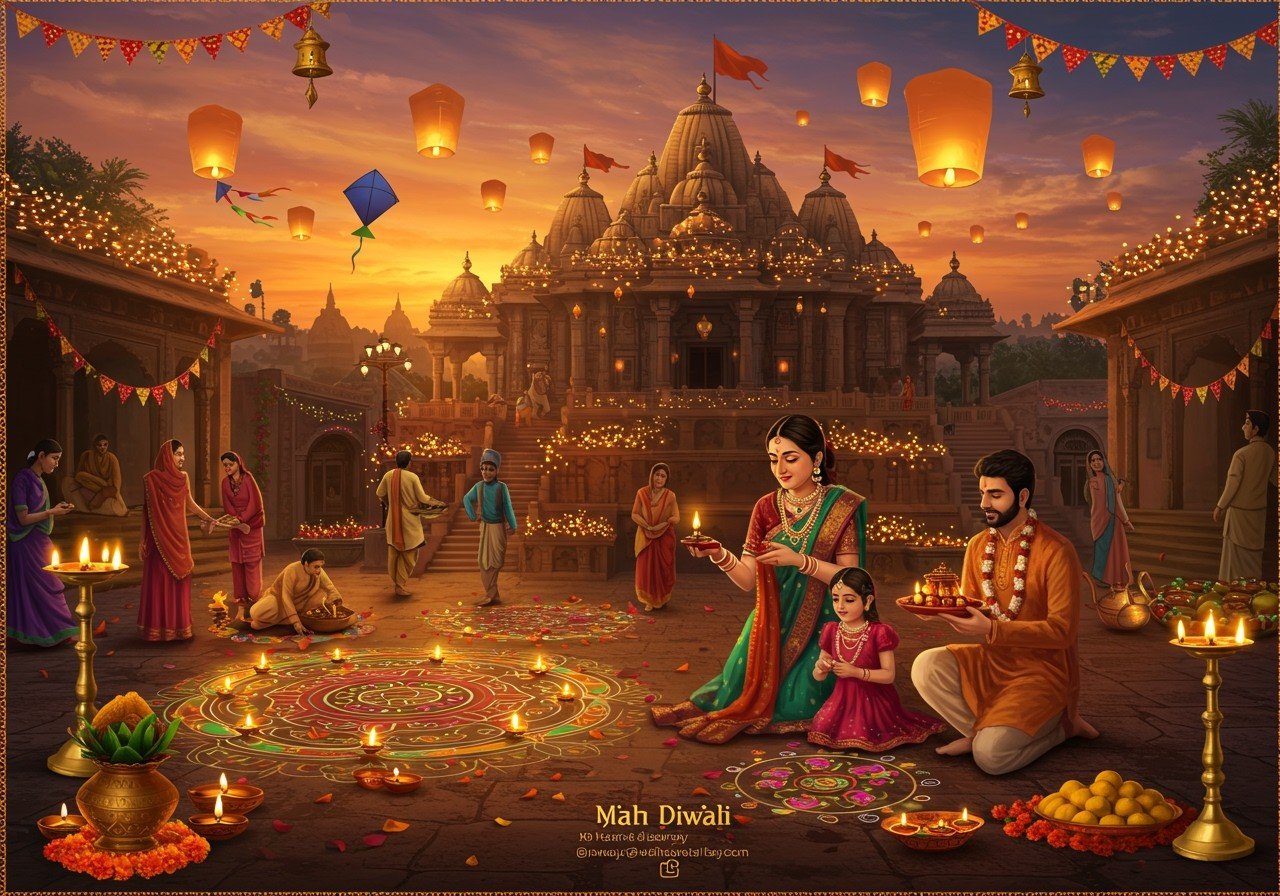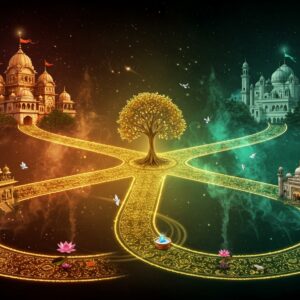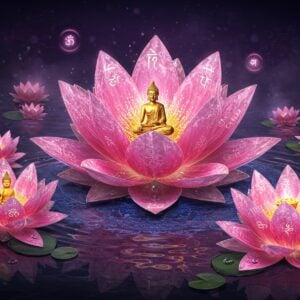Public Holidays in India: A Celebration of Culture and Spirituality

India’s public holidays are deeply intertwined with the nation’s rich cultural tapestry, particularly with Hinduism, the faith of the majority. These holidays offer a glimpse into the heart of Indian society, reflecting its diverse traditions and spiritual beliefs. This article explores the significance of public holidays in India, focusing on their connection to Hindu rituals, practices, and their broader impact on society.
Exploring Public Holidays Across India
India boasts a remarkable number of public holidays, typically between 20 and 25 annually, varying by state. These holidays encompass religious, cultural, and national observances. Some are mandated by the Indian Constitution, while others are determined at the state level, reflecting the unique cultural and religious composition of each region. These state-specific holidays often highlight local festivals and traditions, further enriching the nation’s diverse cultural landscape. Public holidays serve a crucial role in preserving cultural heritage and strengthening community bonds, fostering a sense of unity and shared identity among citizens.
The Hindu Panchang: A Guide to Festive Observances
The Hindu festival calendar, known as the Panchang, plays a pivotal role in determining the dates of Hindu public holidays. This lunisolar calendar harmonizes lunar months with solar years, creating a unique system for marking auspicious occasions. Major festivals like Diwali, Holi, Navratri, and Dussehra are intricately linked to specific lunar dates and are celebrated with widespread enthusiasm across India. Each festival carries its own distinct meaning, rituals, and customs, often rooted in mythological narratives or seasonal transitions. The Panchang beautifully illustrates the cyclical nature of Hindu traditions and underscores the importance of aligning human activities with the rhythms of the cosmos.
Public Holidays and Hindu Rituals
Public holidays provide Hindus with invaluable time to dedicate themselves to religious rituals and practices that are often difficult to observe during the regular work week. These holidays facilitate family gatherings, community prayers, and visits to temples, all of which are integral aspects of Hindu religious life. During major festivals, special rituals and pujas are performed, emphasizing the significance of tradition and spirituality. These occasions also serve as valuable opportunities to transmit cultural values and religious teachings to younger generations, ensuring the continuity of Hindu practices and beliefs.
The Wider Impact of Public Holidays
Public holidays exert a considerable influence on the Indian economy, impacting both businesses and workers. While they provide essential breaks and stimulate tourism, they can also temporarily disrupt productivity. The retail and e-commerce sectors often experience a surge in activity during festival seasons as people purchase gifts and ritual items. Socially, public holidays strengthen community ties and reinforce cultural identity by creating shared moments of celebration and reflection. They play a vital role in sustaining the cultural fabric of society by encouraging active participation in shared traditions.
Navigating the Complexities of Public Holidays
Despite their numerous benefits, public holidays can also present challenges, including the potential for religious tensions in India’s diverse and multicultural society. Balancing the needs of various communities while ensuring respectful observance of all faiths requires careful consideration and sensitivity.
Hindu Public Holidays in 2025: A Year of Celebration
Public holidays in India offer profound insights into the nation’s soul, reflecting its rich cultural and religious diversity. In 2025, Hindu festivals promise a vibrant tapestry of spirituality, tradition, and community bonding.
January: A Festive Start
- Lohri (January 13): Celebrated primarily in North India, Lohri marks the harvest season. Bonfires, folk songs, and festive foods are central to this vibrant celebration. It’s a time to give thanks for the bounty of the earth and look forward to the year ahead.
- Makar Sankranti/Pongal (January 14): This pan-Indian festival celebrates the sun’s transition into Capricorn, signifying the arrival of longer days. It’s a time for kite flying, harvest feasts, and expressing gratitude for the sun’s life-giving energy. Learn more about the Hindu calendar and its significance.
- Republic Day (January 26): This national holiday commemorates the adoption of the Indian Constitution. It’s a day of patriotic pride, marked by parades, flag hoisting ceremonies, and reflections on the nation’s democratic values.
February: Devotion and Wisdom
- Vasant Panchami (February 2): This festival honors Goddess Saraswati, the embodiment of knowledge and the arts. Students seek her blessings for academic success, and educational institutions often hold special ceremonies. You can find a variety of puja items dedicated to Goddess Saraswati on Poojn.in.
- Thaipusam (February 11): Primarily observed by Tamil communities, Thaipusam is a vibrant festival dedicated to Lord Murugan. Devotees undertake elaborate processions, often involving acts of penance and devotion. Discover puja essentials for Thaipusam on Poojn.in
- Maha Shivaratri (February 26): A night of profound devotion dedicated to Lord Shiva, Maha Shivaratri involves fasting, night-long vigils, and prayers. Devotees seek Lord Shiva’s blessings and engage in deep spiritual reflection. Find everything you need for your Maha Shivaratri puja on Poojn.in.
March: Colors and New Beginnings
- Holika Dahan (March 13): The eve of Holi, Holika Dahan involves the symbolic burning of a bonfire, representing the triumph of good over evil. Explore the symbolism of sacred plants in Hindu rituals on Poojn.in.
- Holi (March 14): The festival of colors, Holi is a joyous celebration of spring and the victory of good over evil. Streets and homes are awash with vibrant colors, and people come together to share in the festive spirit. Prepare for Holi with colorful puja items from Poojn.in
- Hindi New Year (March 20): This day marks the beginning of the Hindu New Year, observed with traditional rituals and family gatherings. It’s a time for new beginnings and setting intentions for the year ahead.
April: Spiritual Observances
- Ram Navami: This festival celebrates the birth of Lord Rama, a central figure in Hindu mythology. Temples and homes are decorated, and devotees participate in special prayers and rituals. Discover Ram Navami celebration rituals and traditions on Poojn.in. Enhance your Ram Navami celebrations with puja items from Poojn.in
- Hanuman Jayanti: This day commemorates the birth of Lord Hanuman, the revered monkey god known for his strength and devotion to Lord Rama. Devotees offer prayers and seek his blessings. Find Hanuman puja items and more on Poojn.in
- Akshaya Tritiya: Considered an auspicious day for new ventures and investments, Akshaya Tritiya is associated with eternal prosperity. Many people choose this day to purchase gold or start new projects. Ensure your Akshaya Tritiya is blessed with puja essentials from Poojn.in
May: Continued Prosperity
- Akshaya Tritiya (May 30): The auspiciousness of Akshaya Tritiya extends into May, providing another opportunity for new beginnings and investments. It’s a day believed to bring enduring good fortune.
June: Devotion and Pilgrimage
- Savitri Pooja (June 10): This festival celebrates the unwavering devotion of Savitri to her husband, Satyavan. Married women observe this fast and perform rituals for the well-being of their husbands.
- Puri Rath Yatra (June 27): The grand procession of Lord Jagannath in Puri, Odisha, attracts thousands of pilgrims. Witnessing this spectacular event is considered a deeply spiritual experience. Explore the architectural wonders and spiritual significance of temples on Poojn.in.
- Jagannath Rath Yatra: Celebrated with great pomp and show in Puri, Odisha, this festival commemorates Lord Jagannath’s annual journey. Lakhs of devotees throng the streets to witness the grand procession of the deities.
- Nirjala Ekadashi: This Ekadashi is considered the most significant of all Ekadashis. Devotees observe a strict fast without even water, earning great spiritual merit.
- Ashadh Amavasya: An important day for ancestral worship, Hindus perform rituals and offer prayers for the peace of their departed loved ones.
August: Bonds of Protection and Divine Births
- Raksha Bandhan: A celebration of the bond between siblings, Raksha Bandhan involves sisters tying a protective thread (rakhi) around their brothers’ wrists, symbolizing their love and prayers for their well-being. Celebrate Raksha Bandhan with traditional rakhis and puja items from Poojn.in.
- Janmashtami: This festival marks the birth of Lord Krishna, an important deity in Hinduism. Celebrations often include midnight prayers, reenactments of Krishna’s life stories, and festive feasts. Find beautiful Laddu Gopal murtis for Janmashtami on Poojn.in.
- Ganesh Chaturthi: This festival honors Lord Ganesha, the remover of obstacles. Homes and public spaces are adorned with elaborate decorations, and devotees offer prayers and sweets to Lord Ganesha. Prepare for Ganesh Chaturthi with puja essentials from Poojn.in
September: Honoring the Divine Feminine and Ancestors
- Navratri: A nine-night festival dedicated to Goddess Durga, Navratri involves fasting, devotional dances (garba and dandiya), and prayers. It’s a celebration of the divine feminine power. Find Navratri puja kits and more on Poojn.in
- Pitru Paksha: This fortnight is dedicated to honoring ancestors. Hindus perform rituals and offer prayers for the peace and well-being of their departed loved ones.
October: The Festival of Lights
- Diwali: The festival of lights, Diwali symbolizes the victory of light over darkness and good over evil. Homes are illuminated with lamps and candles, fireworks light up the night sky, and families exchange sweets and gifts. Celebrate Diwali with diyas, lamps, and other puja items from Poojn.in.
Poojn.in: Your Partner in Festive Celebrations
Poojn.in recognizes the profound significance of Hindu festivals and public holidays. We are committed to providing you with all the essential puja items you need, delivered conveniently to your doorstep, even during the busiest festival seasons. Our offerings include:
- Extended Delivery Planning: We factor public holidays into our delivery schedules. Domestic deliveries typically take 7-14 days, while international deliveries require 15-30 days.*
- Festival-Ready Stock: We maintain ample inventory of essential puja items to ensure availability during major Hindu festivals and holidays.
- Complete Puja Solutions: We offer a wide selection of puja kits and individual items for all major Hindu festivals and rituals. Find out more about essential puja items on Poojn.in
Available Festival Products:
- Puja thalis and accessories
- Pure copper kalash
- Brass diyas and lamps Tulsi Kanthi Mala
- Authentic dhoop and agarbatti Sandalwood Agarbatti
- Traditional puja samagri kits
*Note: Delivery times may vary during public holidays and festival seasons. Please check current delivery estimates during checkout.
Embracing Tradition and Togetherness
Public holidays rooted in Hinduism are far more than just days off; they are vibrant expressions of cultural heritage, community spirit, and shared traditions. As we progress through 2025, these festivals offer opportunities for reflection, joy, and spiritual growth. They are a testament to the enduring power of tradition and a reminder of the importance of celebrating our cultural heritage while embracing the conveniences of modern life.
FAQs: Public Holidays and Hinduism
What are some of the most significant public holidays in Hinduism? Diwali, Holi, Dussehra, Raksha Bandhan, and Janmashtami are among the most important Hindu public holidays, each carrying deep cultural and religious meaning.
Approximately how many public holidays does India observe annually? India generally observes between 15 and 20 national public holidays per year, with variations due to regional and state-specific observances.
How do public holidays in India reflect Hindu traditions? Many public holidays coincide with Hindu festivals, showcasing the rich traditions, customs, and stories that are central to Hindu culture. These holidays provide opportunities for families and communities to come together and celebrate their shared heritage. Learn more about temple rituals and their spiritual connection on Poojn.in.
Which Hindu festival is known as the festival of lights? Diwali, also known as Deepavali, is celebrated as the festival of lights, symbolizing the triumph of light over darkness and good over evil. It’s a time for illuminating homes, sharing sweets, and celebrating the victory of righteousness.
Why are public holidays important in Hinduism? Public holidays hold significance in Hinduism as they allow individuals time to engage in religious practices, strengthen family bonds, and participate in community celebrations that reinforce cultural values. These holidays help preserve and transmit traditions across generations.
Does India observe public holidays unrelated to Hinduism? Yes, India observes national holidays such as Independence Day, Republic Day, and Gandhi Jayanti, which are celebrated irrespective of religious affiliation. These holidays commemorate important historical events and national values.
How do regional variations influence public holidays in India? Regional variations lead to a diverse range of public holidays, as different states may observe holidays based on local festivals, cultural events, or historical figures specific to their region. This contributes to the rich tapestry of celebrations across India.
What is the legal minimum number of public holidays in India? While the exact number can vary, most states in India mandate a minimum of 10 to 12 public holidays annually. The specific number is subject to local customs and government regulations.


